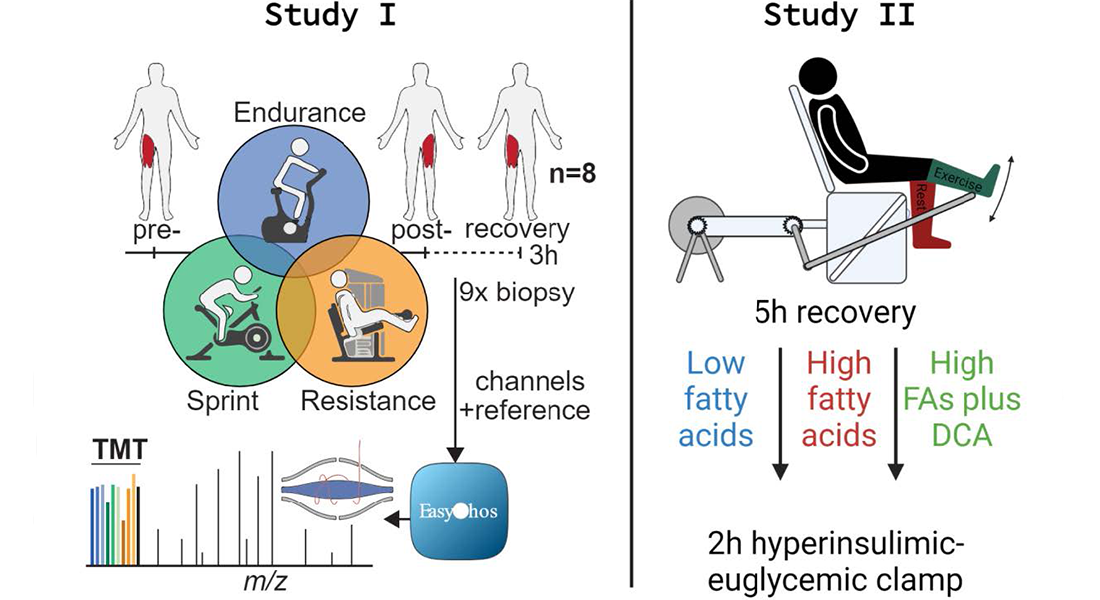PhD defence: Molecular mechanisms in exercise and recovery
In vivo network characterization of the multi-modal exercise phosphoproteome and the mechanisms regulating post-exercise insulin sensitivity in human skeletal muscle

Christian Strini Carl
PhD thesis
Exercise training can prevent and treat numerous chronic diseases including metabolic disorders, e.g., type II diabetes. However, the molecular signals inducing these health benefits are largely unknown.
By illuminating the global phosphorylation status of proteins in human skeletal muscle following endurance, sprint, and resistance exercise, this PhD project found a core set of phosphorylation sites regulated in all exercise modalities. Further, the role of the protein complex pyruvate dehydrogenase (PDC), important for insulin sensitivity, was investigated in humans following exercise.
Using different human exercise models and state-of-the-art methods for measuring signal transduction and insulin sensitivity in vivo, this PhD project provides a greater understanding of proteins regulated with exercise and shows an important function of PDC in insulin-stimulated glucose uptake after exercise.
2023, 141 pages.
Time
27 January 2023, 14:00
Place
Aud. 1, August Krogh Building, Universitetsparken 13, DK-2100 Copenhagen
Opponents
Associate professor Anke Ninija Karabanov (chair), Department of Nutrition, Exercise and Sports, University of Copenhagen, Denmark.
Professor Anna Krook, Dept of Physiology and Pharmacology, Karolinska Institute, Stockholm, Sweden.
Associate professor Bert Blaauw, Department of Biomedical Sciences, University of Padova, Italy.
Supervisor
Professor Bente Kiens, Department of Nutrition, Exercise and Sports, University of Copenhagen, Denmark.
Co-supervisor
Professor Erik Richter, Department of Nutrition, Exercise and Sports, University of Copenhagen, Denmark.
The thesis is available for inspection at Nørre Allé 51, DK-2200 Copenhagen N.
